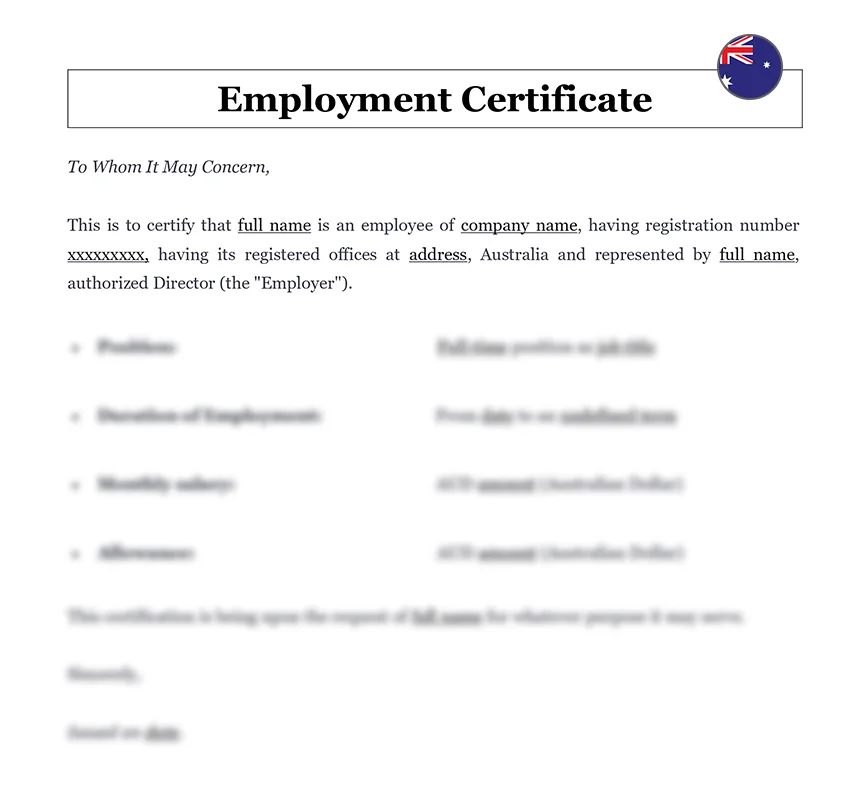Why Work Certificates Matter
In Australia, an Work Certificate is more than just a formality. It serves as an official record of an employee’s tenure and role within a company. This document is crucial when an employee seeks new employment or applies for certain benefits. Much like an Employment Offer Letter, which sets the foundation for the employment relationship
Understanding the Legal Requirements
Australian law mandates that employers must provide an Work Certificate upon request. This document should include:
1. Employee’s Name and Personal Details: Ensure accuracy in documenting the employee’s full name, job title, and dates of employment.
2. Nature of Employment: Clearly state whether the employee was full-time, part-time, or a casual worker.
3. Roles and Responsibilities: Detail the key duties and responsibilities the employee held during their tenure.
The Importance of Accurate and Honest Documentation
Employers must ensure that the Work Certificate is an accurate reflection of the employee’s time with the company. This means:
1. Honest Assessment: Avoid embellishing or downplaying the employee’s contributions. The certificate should be an objective summary of their role.
2. Consistency with Internal Records: Ensure that the information provided in the certificate aligns with internal employment records.
3. Legal Implications: Misrepresenting information can lead to legal issues, especially if the certificate is used in legal proceedings or job applications.
Accurate documentation is just as important as ensuring clarity in Freelance Contracts
How to Request a Work Certificate
Employees in Australia typically request a Work Certificate when leaving a job. The process generally involves:
1. Formal Written Request: Employees should submit a formal, written request to the HR department or their direct supervisor.
2. Processing Time: Employers should respond promptly, ideally within a few business days, to avoid any delays for the employee.
3. Follow-Up: If the certificate is not provided within a reasonable time, the employee may follow up or seek legal advice.
Understanding this process is akin to navigating the steps involved in obtaining a Notice of Meeting for corporate gatherings
Common Uses of Work Certificates
A Work Certificate is used in various scenarios, including:
| ➤ Job Applications: Future employers often require a certificate as part of the hiring process to verify an applicant's work history. |
| ➤ Visa Applications: Certain visa applications may require proof of employment history, making the certificate a necessary document. |
| ➤ Financial Applications: Lenders may request an employment certificate as part of the application process for loans or mortgages. |











